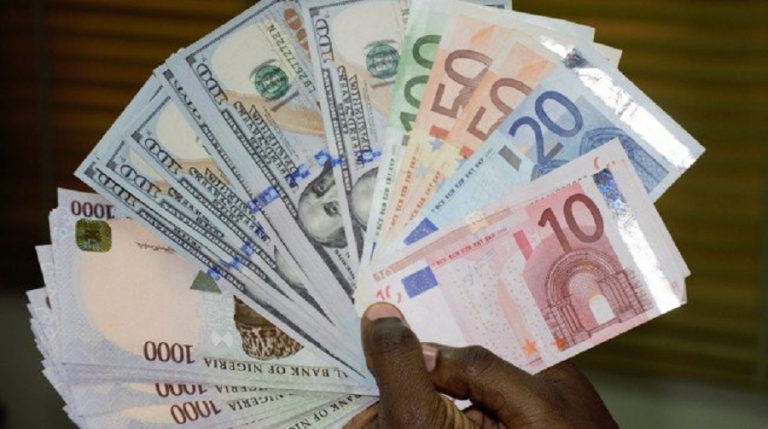The Naira reversed course yesterday, falling at the official window after rising for four days in a row despite the weakening of the US dollar.
On the parallel market, however, it remained steady, closing at N1,635 yesterday, unchanged from the day before.
The local currency depreciated at the official Nigerian Autonomous Foreign Exchange (NAFEM) yesterday, closing at N1,602.43, indicating a loss of N68.24, or 4.45 percent, from its closing value of N1,534.19 on Monday.
The dollar gained ground against a group of currencies on Tuesday as data indicated that U.S. Growth in the services sector abated. A busy week ahead for investors included a rate decision by the European Central Bank, testimony by Federal Reserve Chair Jerome Powell before Congress, and U.S. employment data.
The Institute for Supply Management (ISM) reports that February saw a slight slowdown in the growth of the services industry due to a drop in employment. Additionally, data revealed fresh orders for U.S. manufactured goods fell in January more than anticipated.
The dollar index dropped 0.04% to 103.08 index points, when compared to the value of the dollar to six major currencies including the Euro, British pound, krona, Canadian dollar, Swiss France Japanese Yen.
The dollar index has increased by roughly 2.3% this year thanks to better-than-expected U.S. economic data, but investors’ anticipation of clarity on Fed policy has caused the currency’s rally to pause in recent sessions.
In his testimony to Congress on Wednesday and Thursday regarding inflation and the economy, Chair Powell is expected to reiterate the Fed’s position that it wants to hold off on cutting rates until it has more information.
Meanwhile, the European Central Bank meets on Thursday to discuss policy. It is generally anticipated that interest rates will remain at a record 4 percent. Investors will closely monitor updated economic projections and watch for any clues as to when rates might begin to decline.
Business activity in the eurozone appeared to be recovering last month, according to survey data released on Tuesday. At $1.08515, the euro was down 0.04% versus the dollar. The employment report for February could shock markets on Friday. A higher-than-expected number could contribute to the dollar’s increase this year, despite economists’ expectations that hiring slowed last month.

